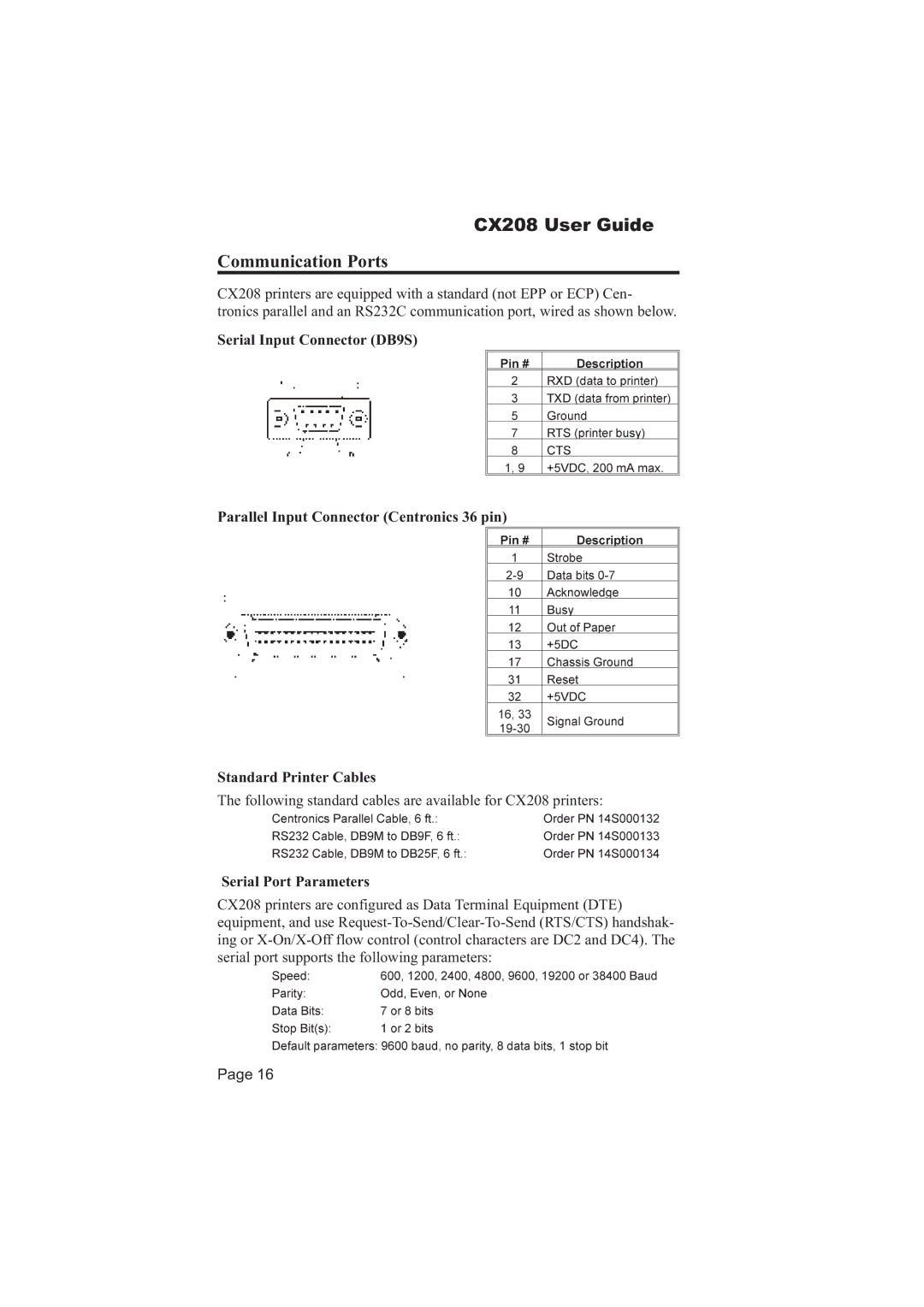208 specifications
The SATO 208 is a compact yet versatile thermal transfer printer designed for efficient labeling in various industries. Known for its durability and reliability, the SATO 208 is a favored choice in retail, healthcare, logistics, and manufacturing sectors. One of its standout features is its user-friendly interface, which makes setup and operation straightforward even for those with limited technical knowledge.Equipped with a high-resolution print head, the SATO 208 delivers crisp and clear labels with a print speed of up to 4 inches per second. This ensures that users can produce labels quickly without compromising on quality. Additionally, the printer supports a wide range of label sizes, accommodating diverse labeling needs, from small tags to large product labels.
One of the key technologies utilized in the SATO 208 is its thermal transfer printing method. This technology uses a ribbon coated with wax or resin to transfer images onto various label materials. This ensures that the printed labels are resistant to fading, smudging, and scratching, making them suitable for demanding environments. The printer also includes an adjustable print density feature, allowing users to customize the print quality based on specific applications.
The SATO 208 is designed for seamless integration into existing systems, thanks to its versatile connectivity options. It supports USB, serial, and parallel interfaces, enabling straightforward connection to computers and other devices. Moreover, the printer is compatible with various operating systems, including Windows and Linux, ensuring flexibility across different environments.
Another important aspect of the SATO 208 is its robust build quality. Built to withstand the rigors of industrial use, it features a rugged exterior and a compact design that allows it to fit in limited spaces while still performing at high efficiency.
Maintenance has also been simplified with the SATO 208, as it is equipped with a user-replaceable ribbon and easy-to-clean components. This minimizes downtime and ensures that the printer remains operational with minimal effort.
In summary, the SATO 208 combines advanced printing technologies with practical features, making it an ideal solution for businesses looking for a reliable and efficient labeling solution. Its user-friendly operation, high-quality output, and robust design solidify its place as a key player in the thermal transfer printer market.

